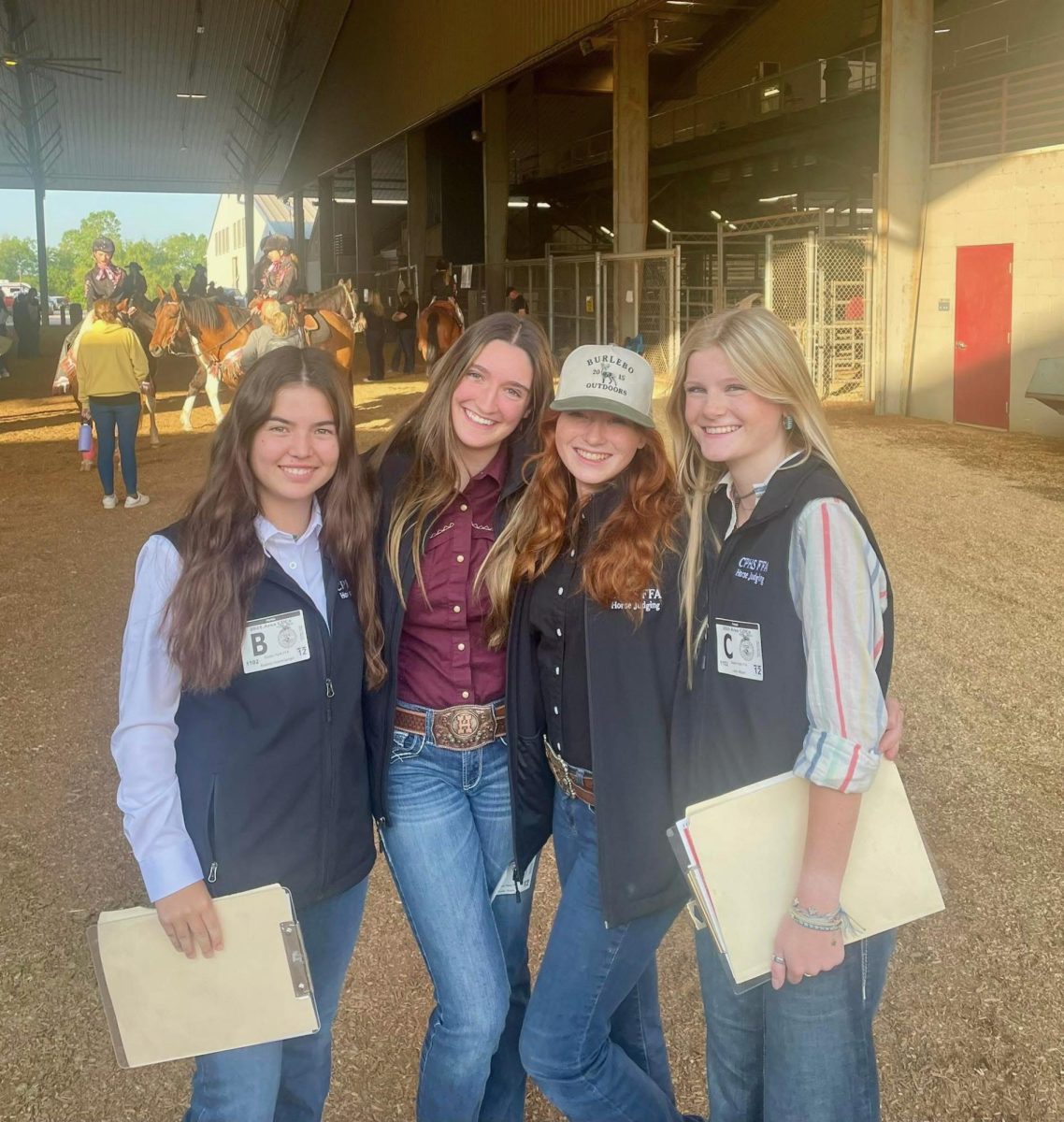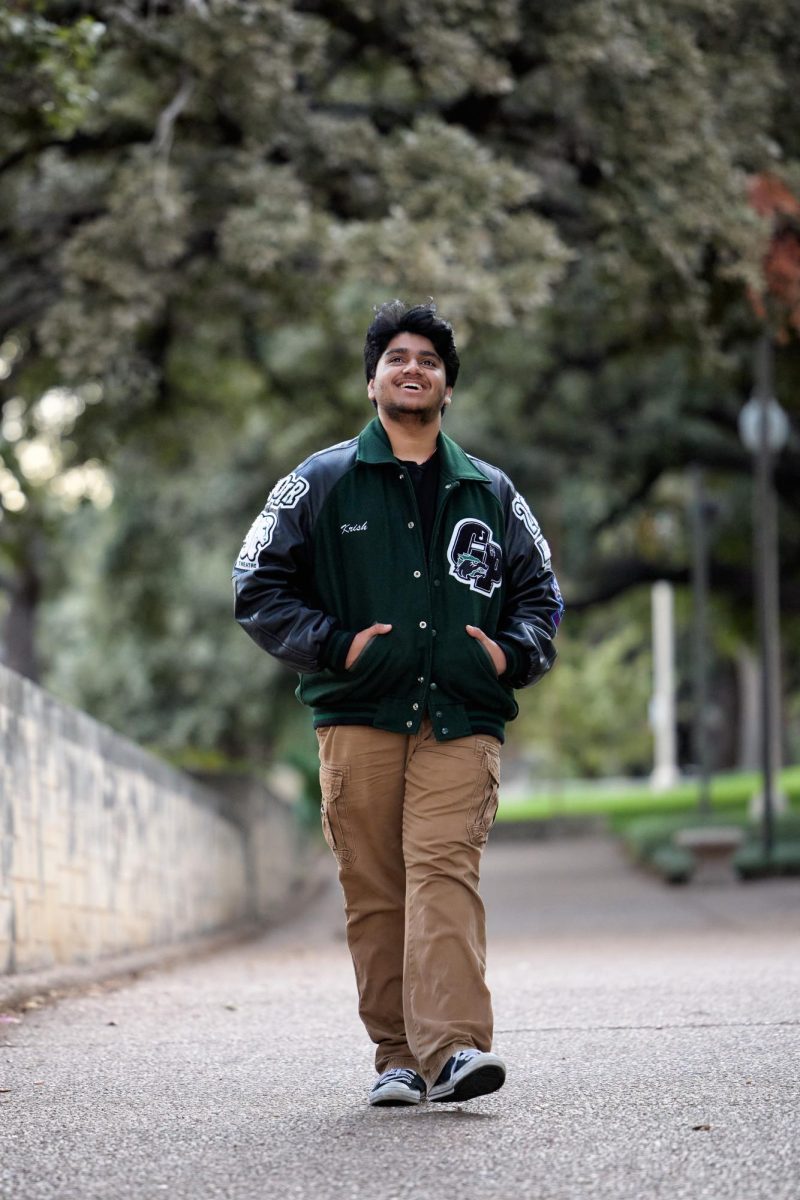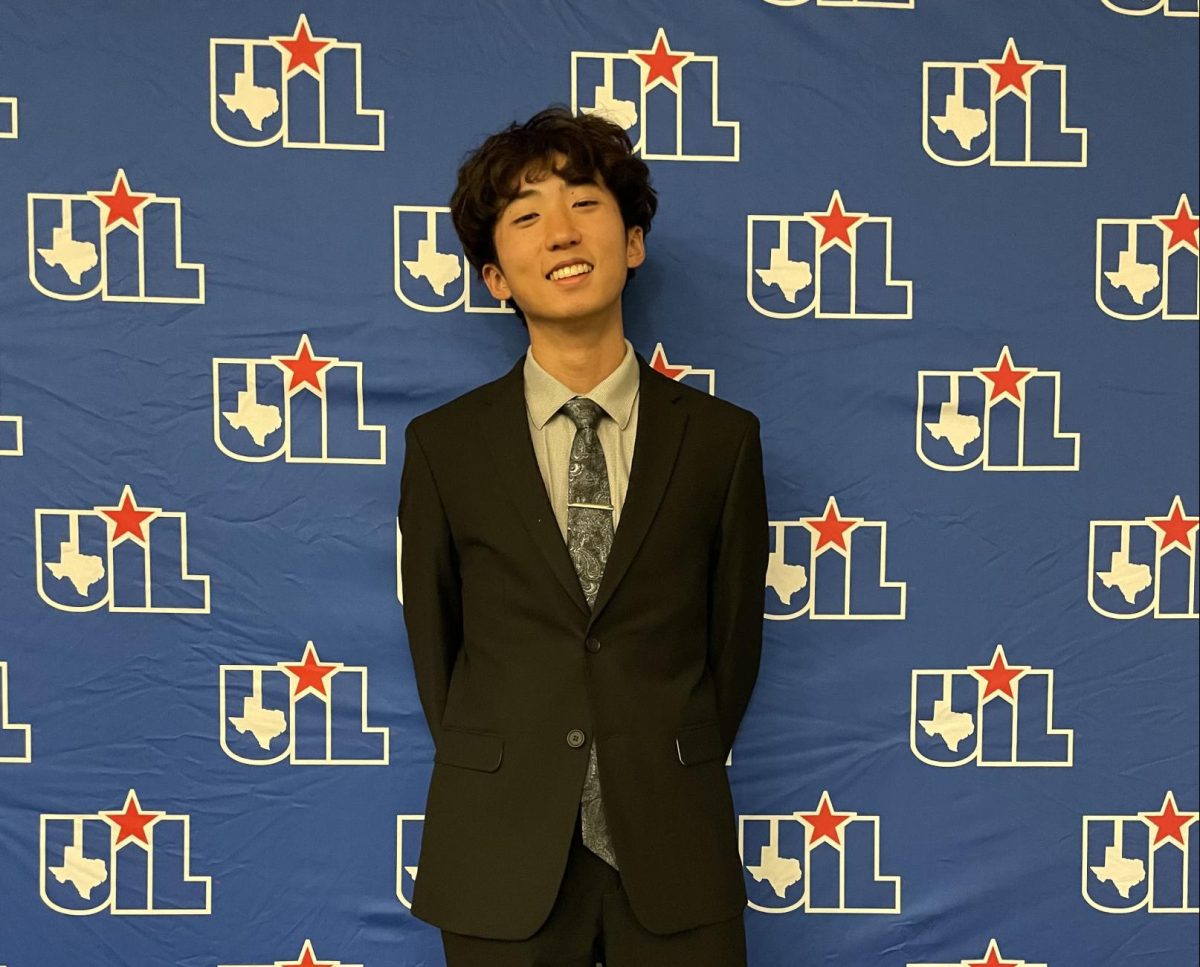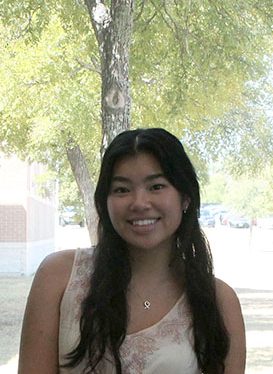Standing amongst the other competitors, senior Nathan Li looks over his notes, waiting for his turn to speak. Hours of preparation and practice have all led to this moment, where he will show what he is capable of. His name is called and it’s time for him to leave it all on the floor.
The state competition for debate was held Jan.10-11 at the University of Texas at Austin and the Capitol building. This is where debaters would find out if they made it to nationals after competing. Out of all of the LISD schools, Li was the only student to place high enough at regionals to compete at state, making him the lone district competitor.
“State is definitely a much higher level of competition than regionals,” Li said. “People were noticeably better, there weren’t any especially weak speakers like there were at region, it was a little intimidating.”
As far as fall events, Li competes in Congressional Debate, also called Congress, which is an event that mocks a legislative assembly.
“I was really proud of myself because when I was I junior, I competed at regionals for Congress and got 4th place,” Li said. “Which is one place away from qualifying [for state]. I was really mad, so this year I vowed to make it and I did and I’m very proud.”
At regionals, there were around 30 competitors while the state competition consisted of closer to 50 competitors from 20 regions. For this particular event, Li was in a chamber with 17 other competitors giving speeches and debating over bills they had looked over.
“My first speeches were a bit more shaky because I was a bit more nervous,” Li said. “But I’d say the best way to deal with the nerves is to have positive self talk. Anytime you hear anybody who you think is better than you speaking, just remind yourself that what they’re doing is not that far above your level and that you can sound just as good as them.”
For congressional debate, the competitors are given a docket of 20 pieces of legislation that are created by schools and submitted to UIL. After reviewing the bills, UIL then submits the best bills onto the docket and are given to the competitors to review, write speeches on, and prepare arguments for. Everyone in the chamber speaks one at a time and has an allotted three minutes to speak. Once done speaking, people ask them questions to which they have to defend themselves. Some of Li’s fellow debate classmates were alternates, so they were able to watch him compete.
“I felt pretty alone, but my friends were alternates and they were giving me support,” Li said. “They had some feedback for me; after the first speech they told me that I wasn’t being aggressive enough and after the second speech they told me that I needed to look up at the judges more and I took that feedback to heart and it definitely helped me.”
State is two days long, the first day being prelims, which was held in a UT classroom while finals were held in the Capitol building. The competitors debated for eight hours each day and Li placed ninth out of the 18 people in his chamber. Although he did not advance to finals, he attended it the next day to spectate.
“I think something that kept me motivated was the passion that the other debaters put into their speeches,” Li said. “When everyone gets riled up about something, that makes you want to say your peace and that keeps you motivated. I probably want to do congressional debate in college as well but high school congressional debate I will [definitely] miss.”
In addition to congressional debate, Li also competes in a spring event called Lincoln Douglass, otherwise known as LD. Li is captain of this event and teaches the debate novice class how to get good at this event.
“I feel pretty good about spring, LD is my event, it’s the event that I’m captain of. There is a lot of pressure because I made state and I’m captain,” Li said. “I would say [LD] helps people learn how to think on their feet because LD is one-on one and it’s largely you just saying what you think and you don’t get a lot of prep time”
Li has been doing debate for three years and joined the novice class when he was a sophomore. Li did not always have the intention of doing debate in high school, as he was going to be in more STEM-focused classes before he realized they weren’t for him.
“I think debate is fun but also I really like my peers; we’re all super supportive of each other and even though we pursue different events, we still try to understand each other, try to hear each other’s struggles,” Li said. “It’s a good time and they’re pretty cool. Looking through the lens of how it benefits me, congress is more of a speaking event, while LD is more of a logic argumentation event. Both of those [events] will be helpful in the future because I probably want to go into something law-related so these would also just help me day-to-day to speak more coherently.”
According to Li, debate has taught him many lessons and provided him with the opportunity to expand his skills.
“To future debaters, as great as the debate coach is, and as much as you can learn in the classroom, the only way you’re ever gonna get good at debate is actually going to debate competitions and overcoming your fears because that’s where you see some exponential growth: when you’re in the moment,” Li said. “Good luck to whoever is competing in Congress in the future, I know you guys can do great, you just have to prepare and not be afraid.”

![Posing with their UIL State Trophy, the Robolobos Van Halen Team beams with excitement after their win. “It was a team effort,” junior Noah Vo said. “I was happy because something happened in the first match and the match was also really close. So [when] they finally revealed it, I was pretty happy.” Photo courtesy of Amy Lovelace](https://cphswolfpack.com/wp-content/uploads/2025/05/IMG_0910-EDIT-1200x723.jpg)

![Broadcast, yearbook and newspaper combined for 66 Interscholastic League Press Conference awards this year. Yearbook won 43, newspaper won 14 and broadcast took home nine. “I think [the ILPC awards] are a great way to give the kids some acknowledgement for all of their hard work,” newspaper and yearbook adviser Paige Hert said. “They typically spend the year covering everyone else’s big moments, so it’s really cool for them to be celebrated so many times and in so many different ways.”](https://cphswolfpack.com/wp-content/uploads/2025/05/edited-ILPC.jpg)













![Bringing her arm over her head and taking a quick breath, junior Lauren Lucas swims the final laps of the 500 freestyle at the regionals swimming competition on date. Lucas broke the school’s 18-year-old record for the 500 freestyle at regionals and again at state with a time of 4:58.63. “I’d had my eye on that 500 record since my freshman year, so I was really excited to see if I could get it at regionals or districts,” Lucas said. “ State is always a really fun experience and medaling for the first time was really great. It was a very very tight race, [so] I was a bit surprised [that I medaled]. [There were] a lot of fast girls at the meet in general, [and] it was like a dogfight back and forth, back and forth.” Photo by Kaydence Wilkinson](https://cphswolfpack.com/wp-content/uploads/2025/03/Kaydence-2.7-23-edit-2.jpg)
![As the support team sits and poses for a photo in the cafeteria with the counseling team they eagerly wait to start their day. "We [all] seem to be a team, I get up every day and there's days where I don't want to go to work today, but I'm thankful that I have a job and I'm blessed to have what I have," Christopherson said. Photo Courtesy of Julie Weltens.](https://cphswolfpack.com/wp-content/uploads/2025/01/AF9E8470-10D7-4C91-BF28-EC8F86BAB66C-1200x852.jpeg)
![Officer Stephanie Cash is in her second year as an SRO at CPHS. “Seeing [students] grow over the years has been kind of cool,” Officer Cash said. “Freshmen that [are] all over the place and then in the next couple of years get a little more squared away and go to class and do work and start thinking about the future. Being a part of a student's growth is the best way to measure my success as an SRO.” Photo Courtesy of Cedar Park Police Department's PIO, Alicia Gallagher.](https://cphswolfpack.com/wp-content/uploads/2024/12/CPHS-SRO-900x1200.jpg)



![Taking a breath as he raises his arm up and out of the water, sophomore Kaden Padilla swims the 500 freestyle at the UIL state meet on Feb. 21-22. Padilla placed 10th overall and second in the consolation final in the event, dropping two seconds. “My family was there, so being able to drop time for them was really special,” Padilla said. “It was awesome [finding out I advanced to the consolation finals]. I wasn’t expecting it, and I was very surprised. My parents being there definitely made me a lot happier knowing they got to see me swim in finals.” Photo by Skyler King.](https://cphswolfpack.com/wp-content/uploads/2025/03/kaden-padilla.jpg)

![Three defenders try to stop senior point guard Hope Edwards before the ball leaves her hands. The girls basketball team faced Liberty Hill on Feb 21, losing 58-40. “[My season was] definitely bittersweet,” Edwards said. It's definitely sad [because] I'm gonna miss all my teammates, my coaches and just the whole CP environment.”](https://cphswolfpack.com/wp-content/uploads/2025/03/julia-128-1200x800.jpg)














